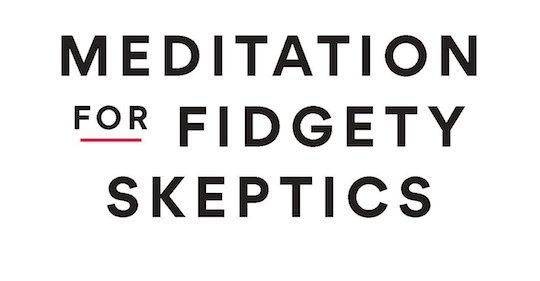Andy Peloquin
New Member

Depression is so much more than just "the blues"! It's a very real disorder (major depressive disorder) that affects nearly 15 million American adults, or just under 7% of the U.S. population. Though it's more prevalent in women, it can affect men almost to the same extent. Depression can increase your risk of heart attacks, strokes, and many other illnesses.
Many people have the wrong idea about depression. They think you can simply "snap out of it", or that you're just in a bad mood. But depression has nothing to do with YOU and the way you feel. For the most part, it's related to the chemistry of your brain. When there is an imbalance in your neurochemicals, your brain doesn't produce enough serotonin, norepinephrine, dopamine, and other "feel food" chemicals. This lack of chemicals leads to what is known as clinical depression.
Medications for Depression
There are a number of medications that can help to treat the chemical imbalances in your brain:
- SSRIs -- Selective Serotonin Re-uptake Inhibitors (SSRIs) decrease the serotonin blockers in your brain, increasing the production of the "feel good" chemical. They are some of the most commonly prescribed anti-depressants, and include brands like Prozac, Zoloft, Lexapro, and Luvox.
- SNRIs -- Serotonin and Norepinephrine Reuptake Inhibitors (SNRIs) help to improve the levels of these two neurochemicals, effectively treating depression. Common brands include Pristiq, Cymbalta, and Effexor XR.
- TCAs -- Tricyclic Antidepressants (TCAs) are sort of a last-ditch option for when the SSRIs and other antidepressants aren't working. They come with more side effects, but can be an effective option if you're not seeing positive effects from regular antidepressants.
There are other types of medications that can be used to treat depression (tetracyclic antidepressants, dopamine reuptake blockers, MAOIs, 5-HT2 and 5-HT3 receptor antagonists, etc.), but these are the medications most commonly prescribed.
Natural Ways to Deal with Depression and Anxiety
If you're not certain you want to go the medical route, here are a few natural solutions to help you deal with your depression:
- Raise Your Testosterone Levels -- Did you know that Low T can increase your risk of depression? One 2015 study found that more than 50% of men with low testosterone either had the symptoms of depression or were diagnosed. Get your testosterone levels up, and it can help to restore a healthy hormone and chemical balance in your brain and body.
- Exercise -- It's a well-known fact: exercise is a cure/remedy for depression and anxiety! It will flood your body with endorphins, reduce stress, promote the production of neurochemicals, ward off the feelings of depression and anxiety, and improve your sleep habits. With 4 to 6 hours of exercise per week, you'll notice the difference in no time!
- Get a Massage -- Therapeutic massage has been around for thousands of years, and it's a highly effective way to deal with the symptoms of depression. One study at the University of Miami found that daily massage can help to reduce depression and anxiety and reduce stress.
- Talk to Friends -- Depressed people have fewer meaningful connections and relationships, but did you know that being more socially extroverted can help to deal with depression? The more time you spend laughing, talking, and engaging with friends, the easier it will be to "get out of your head" and forget about your depression for a while.
- Try Therapy -- Therapy for anxiety and depression does more than just treat the symptoms, but it tries to look for the root of the problem and expose them. Once you understand what's causing the depression, it's easier to take steps to deal with it. Therapy may not work for everyone, but it has had excellent results in many cases!
- Mindfulness/Meditation -- Meditation can be as effective for treating depression as medication! A 2014 study found that mindfulness meditation can help to deal with the symptoms of depression almost as effectively as anti-depressants. It's worth trying a few classes to learn how to meditate and deal with your depression by being more mindful of your thoughts, actions, and state of being.
- Read Books -- There are MANY self-help books that can help you to deal with your problems. It goes beyond just managing the symptoms, but these books will allow you to find the cause of depression and deal with it. A few books to try: The New Earth by Eckhart Tolle, Darkness Visible by William Styron, The Noonday Demon by Andrew Solomon, and A Fan's Notes by Frederick Exley.
- Volunteer -- Sometimes, all you need is a way to get out of your head and stop thinking about your life and problems. Volunteering has been proven to be an effective method of treating depression. One study found that volunteering not only helped to lower depressive symptoms in the elderly, but it also encouraged social interaction and countered negative moods. It can be a great way to change things up and experience the benefits of helping others.
- Avoid Stimulants -- Both alcohol and recreational drugs are "mood altering" substances, meaning they can affect the way you feel and your state of mind. People with depression are even more susceptible to drastic mood swings as a result of alcohol or drug use. Alcohol can make you act more impulsively, enhance a negative mood, and counteract the effects of anti-depressants. Excessive use of alcohol or drugs can cause you to "stop caring", leading to social and emotional detachment that can make your depression even worse.
- Find the Right Friends -- Having friends is important if you suffer from depression, as that social engagement is a key to fighting off the symptoms of depression. However, it's vital that you surround yourself with the right people, people who will help you to stay positive, fight the depression, and avoid self-destructive behavior.
Last edited by a moderator:
















